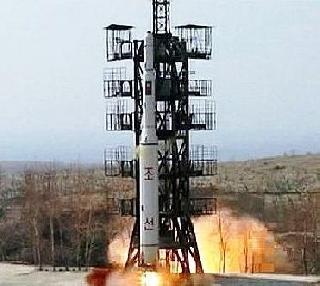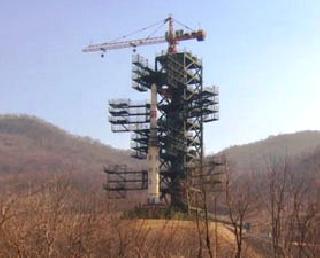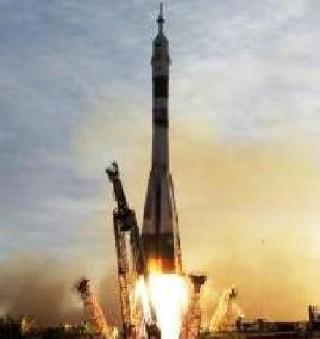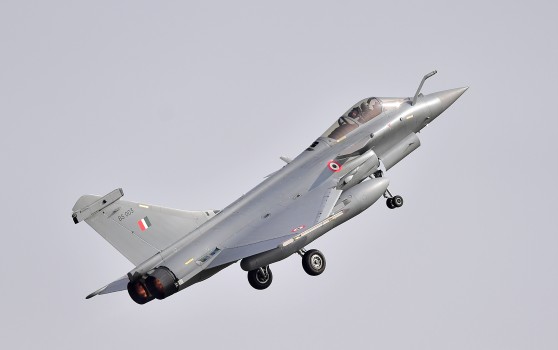
A file photo.
PYONGYANG (AFP): North Korea on Friday launched a long-range rocket that disintegrated soon after blastoff, according to the US and Asian nations who condemned it as a "provocative" act threatening regional security.
North Korea had said the rocket was aimed at putting a satellite in orbit for peaceful research purposes, but Western critics see it as a disguised ballistic missile test, banned by United Nations resolutions.
"North Korea is only further isolating itself by engaging in provocative acts, and is wasting its money on weapons and propaganda displays while the North Korean people go hungry," White House spokesman Jay Carney said.
North Korean officials had no immediate comment on the launch. They said an announcement would be made before 9 am (0530 IST), but that event appeared to be delayed.
South Korea also said that the rocket, which was launched at 07:39 am (2239 GMT Thursday), ended in failure.
"North Korea's launch... is a clear breach of the UN resolution that prohibits any launch using ballistic missile technology. It is a provocative act threatening peace and security," Foreign Minister Kim Sung-Hwan said.
A ministry spokesman said that: "A few minutes after the launch, the rocket disintegrated into several pieces and lost its altitude."
Japan's Chief Cabinet Secretary Osamu Fujimura also condemned the launch, regardless of the fact that it had failed.
"Even if it was a failure, it is a grave provocation to our country and other countries concerned and violates UN Security Council resolutions," he said.
The South's Yonhap news agency quoted a high-ranking military source as saying the debris fell into the Yellow Sea off South Korea. An analyst told Yonhap TV the first stage of the rocket may have failed to separate.
The North American Aerospace Command (NORAD) and the US military's Northern Command "detected and tracked a launch of the North Korean Taepodong-2 missile," NORAD said in a statement.
"At no time were the missile or the resultant debris a threat," it added.
British Foreign Secretary William Hague expressed "deep concern" over the launch, which he said was a clear violation of the UN ban, and called for a robust response from the international community.
German Foreign Minister Guido Westerwelle also quickly condemned the move, telling AFP it was a "violation of international obligations and will increase tensions on the Korean peninsula."
The 15-member UN Security Council was to meet in emergency session on Friday "to decide its next step" following the action, a UN diplomat said.
The preparations for the launch had triggered regional alarm in recent days.
Tokyo deployed missile defence systems to intercept and destroy the rocket if it looked set to fall on Japan, and flights were diverted to avoid being in the Pacific area where debris from the rocket was expected to fall.
Japan's Defence Minister Naoki Tanaka said the North Korean projectile had fallen into the sea after a short flight.
"The flying object is believed to have flown for more than one minute and fallen into the ocean. This does not affect our country's territory at all," he said.
North Korea said the launch would not be a banned missile test and that it had every right to send the satellite up, to coincide with Sunday's centenary of the birth of its founding leader Kim Il-Sung.
The 30-metre (100-foot) Unha-3 (Galaxy-3) rocket had been positioned at a newly built space centre on the country's northwestern Yellow Sea coast.
 Previous Article
Previous Article Next Article
Next Article













The Indian Air Force, in its flight trials evaluation report submitted before the Defence Ministry l..
view articleAn insight into the Medium Multi-Role Combat Aircraft competition...
view articleSky enthusiasts can now spot the International Space Station (ISS) commanded by Indian-American astr..
view article